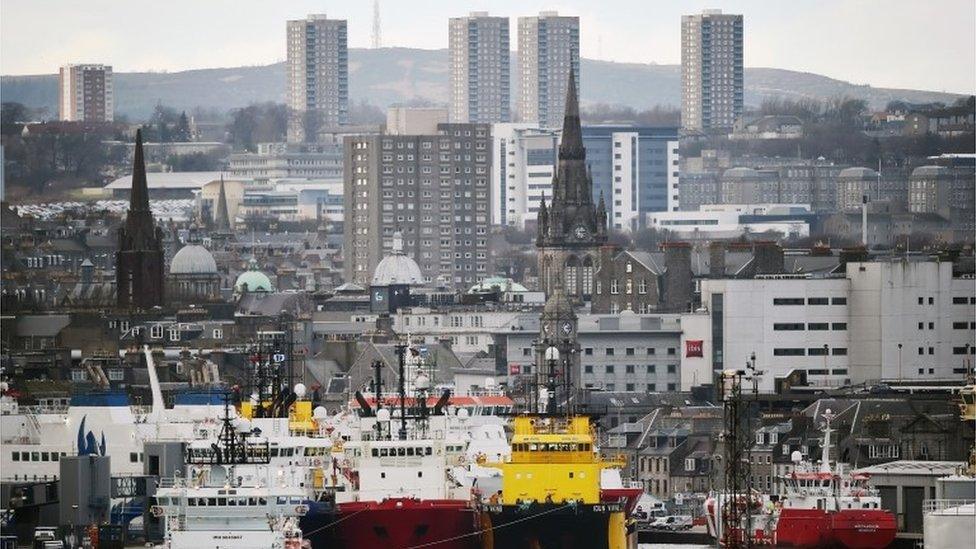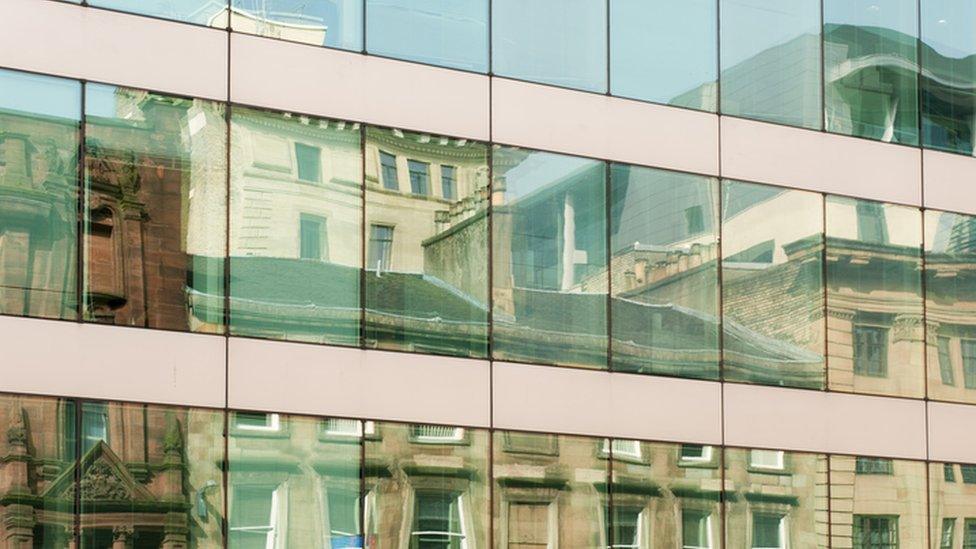Investment in Aberdeen commercial property 'plummets'
- Published

The report concluded that the low oil price had "continued to take its toll" in the north east of Scotland
Investment in commercial property has plummeted in Aberdeen in the last two years, according to a report by a consultancy.
Knight Frank found transaction volumes in the Granite City fell from over £600m in 2014 to only £55m last year.
Investment in offices alone slumped from £500m in 2014 to £30m in 2016.
Knight Frank said the low oil price "continued to take its toll" in the north east, with few deals going through in 2016.
But it added that market conditions could improve in the year ahead, with crude prices making a recovery.
The report found investors spent nearly £1.8bn last year across all sectors in Scotland, including offices, hotels, shops, student accommodation and industrial units.
The figure was 12% down on the previous year but above the 10-year average of £1.72bn.
Edinburgh registered a particularly strong year for investment, with almost £1.2bn transacted across all sectors - 92.5% up on 2015.
But Glasgow saw a "more muted" 12 months, with transaction volumes down by 59% at £280m.
Market 'resilient'
Alasdair Steele, from Knight Frank, said: "Overall, the Scottish commercial property market remained resilient, despite an unstable 12 months.
"Across the country, political uncertainty has influenced investment levels over the last year.
"However, there's a general feeling beginning to emerge that Scotland offers good value and strong fundamentals - an attractive proposition for investors seeking solid returns at an especially turbulent time.
"We'd hope to see that reflected in transaction volumes picking up in 2017, provided the political climate remains stable."

Meanwhile, a separate report has suggested that investor interest in Scotland's commercial property market has failed to pick up despite an increase in occupier demand.
The Royal Institution of Chartered Surveyors (Rics) said both domestic and foreign investment inquiries stayed in negative territory in the last quarter.
At the same time, the supply of property for investment purposes fell across all sectors.
Some surveyors described market conditions as "challenging".
The latest Rics UK commercial market survey suggested increased demand from occupiers in the office and industrial sectors.
But it was a different story for retail in the fourth quarter, with a net balance of 14% more chartered surveyors reporting a fall in demand for retail space.
'Fears over economy'
Gavin Anderson, from Montagu Evans in Glasgow, said: "The current economic outlook isn't looking great and consumer spending on the high street is feeling the effect of growing fears about the economy.
"Hopefully, the anticipated reduction in the rateable value of retail premises from April 2017 will act as a catalyst to help retailers' profit margins across their shop portfolios and increase their confidence to expand and take more stores next year."
Rics chief economist Simon Rubinsohn said: "The results for the survey suggest that the commercial property market in Scotland has failed to attract investor interest despite an increase in occupier demand for commercial property in the last quarter.
"This may be due, in part, to the prospects for the economy and the political situation more generally."